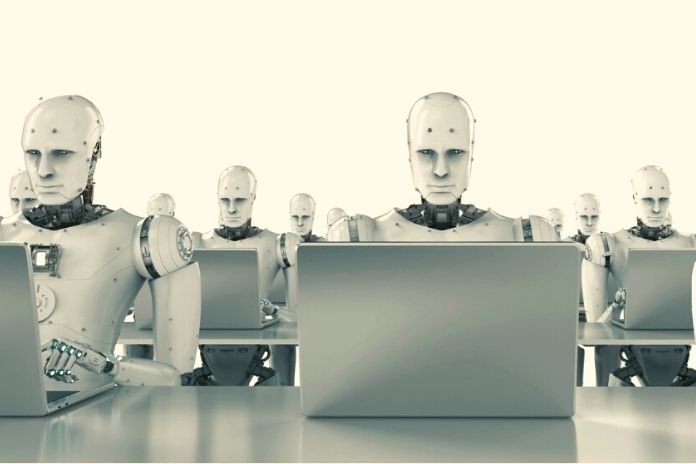We no longer have to wait for the future. The future is already here. This follows from the reality imposed by robotics in the industry. However, ignorance, training, and assumptions have created some fear. The question is: will robots replace people? HR managers respond.
Robotics Will Not Destroy Jobs
Most HR professionals believe that the advancement of robotics will not destroy jobs. No more and no less than 75% of HR directors are convinced that robots bring with them a very important transformation of the labour market. An important part of them ensures that it will lead to new jobs hitherto unknown.
This follows from the “Qualitative Study of Perception of Industrial Robotics.“ The Adecco Group, a world leader in human resource management, and the Cuatrecasas Institute for Legal Strategy in HR have carried out this work on the impact of robotics.
The study has had the opinion of a hundred Spanish HR directors, with all economic sectors. In this way, the pulse has been taken at the level of knowledge and awareness presented by the company on the adoption of robotics and how robots affect the different industrial sectors.
Preparation Of The Workforce
Despite the good omens, 93% of the experts agree on one perception. They believe that most templates are not prepared, or are only partially prepared, to assume the integration of robots in companies.
These opinions open different ways of raising awareness regarding industrial robotics. Some HR CEOs believe that “the development and implementation of robotics in companies will help us become better professionals, providing us with tools that will allow us to go where we have never gone before.”
Despite this, HR leaders consider it advisable that the legislation contemplates certain obligations for the employer. It is about taking measures that can guarantee the process of integration between robots and humans in the development of work activity.
The Impact Of Robots In The Medium And Long Term
Undoubtedly, robotics has already entered our lives and is changing our daily lives personally and professionally. Robots are changing the rules of the traditional job market at a breakneck pace.
According to 88% of the human resources professionals surveyed by Adecco and the Cuatrecasas Institute, robotics will have a high or very high impact on the labour market in the coming years. This possible impact on the labour market will occur, always according to those surveyed, in the medium and long term, as indicated by 78%.
Companies believe that the incidence of robots in companies will be positive, among other things, because it will provide greater agility to processes (50%). Respondents also say that it will encourage innovation and the development of new products and services (21%) and help reduce the number of errors (14%). The count of beneficial effects could close with the forecast of a decrease in the levels of occupational accidents (5%) and absenteeism.
The Fear Of Employers To The Reaction Of Workers
62% of experts believe that the industrial and manufacturing sectors will experience the greatest impact of this technology. In fact, in other sections of the labour market, the incidence is practically residual.
Despite this and being convinced that new jobs will be created, employers fear adverse reactions from the workforce and the trade unions.
The two main concerns for them are the potential resistance of employees to technological progress (55%) and the union reaction that the adoption of robotics in Spanish companies may bring about (49%).
However, everyone seems to agree that these eventualities can be minimised. For this, a profound cultural change is necessary. We must bet on a concept of employment and business that moves away from the face-to-face and rigid standards of the 20th century.
The intensive and successful integration of robots in organisations requires constant and consistent communication and coherence. Often the biggest challenge is people’s fear of the unknown, and this can be improved by communicating clearly and honestly about what you are trying to do and why.
We can better understand the opinion of hiring managers regarding the impact of robots on companies. To do this, we offer you this infographic in which we show you the “Qualitative Study of Perception of Industrial Robotics in Spain” in figures.
ALSO READ: Artificial Intelligence Reduces Working Days To Working Hours

